Privatization of Land and its Impacts on Agro-Pastoral Livelihoods in Karamoja, Uganda: Case studies of Moroto and Nakapiripirit Districts
Resilience
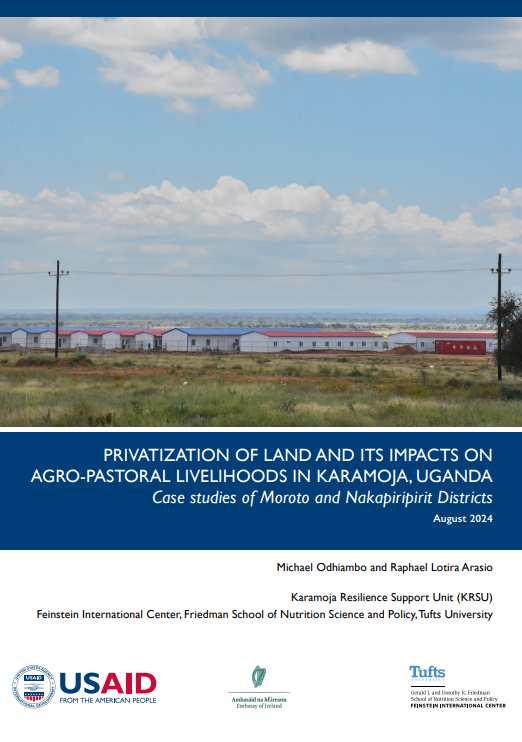
Privatization of Land and its Impacts on Agro-Pastoral Livelihoods in Karamoja, Uganda: Case studies of Moroto and Nakapiripirit Districts
This report presents the findings of a review of land issues in Karamoja, with a particular focus on trends in privatization of communal lands and its impacts on agro-pastoral livelihoods.
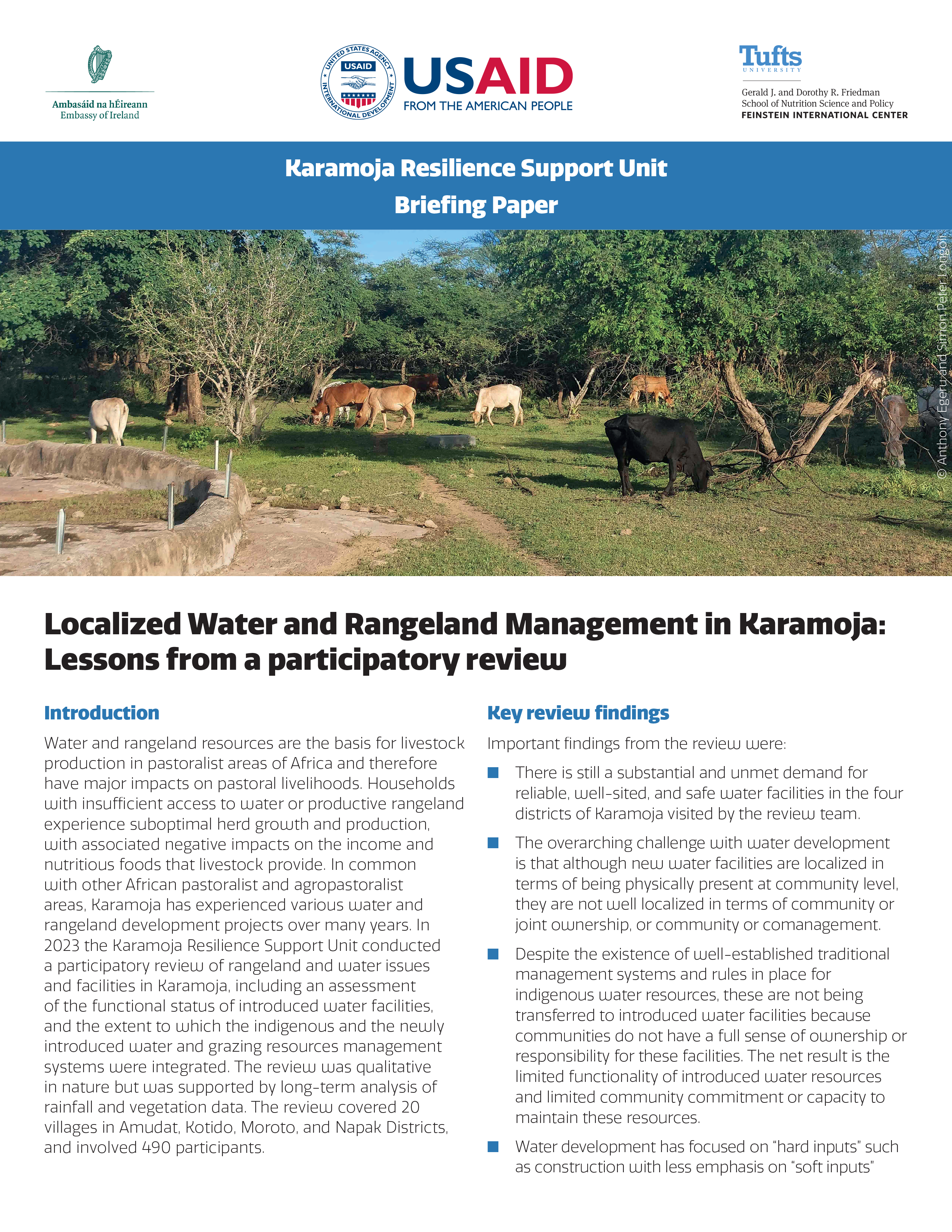
Localized Water and Rangeland Management in Karamoja: Lessons from a participatory review
Water and rangeland resources are the basis for livestock production in pastoralist areas of Africa and therefore have major impacts on pastoral livelihoods. Households with insufficient access to water or productive rangeland experience suboptimal herd growth and production, with associated negative impacts on the income and nutritious foods that livestock provide. In common with other African pastoralist and agropastoralist areas,
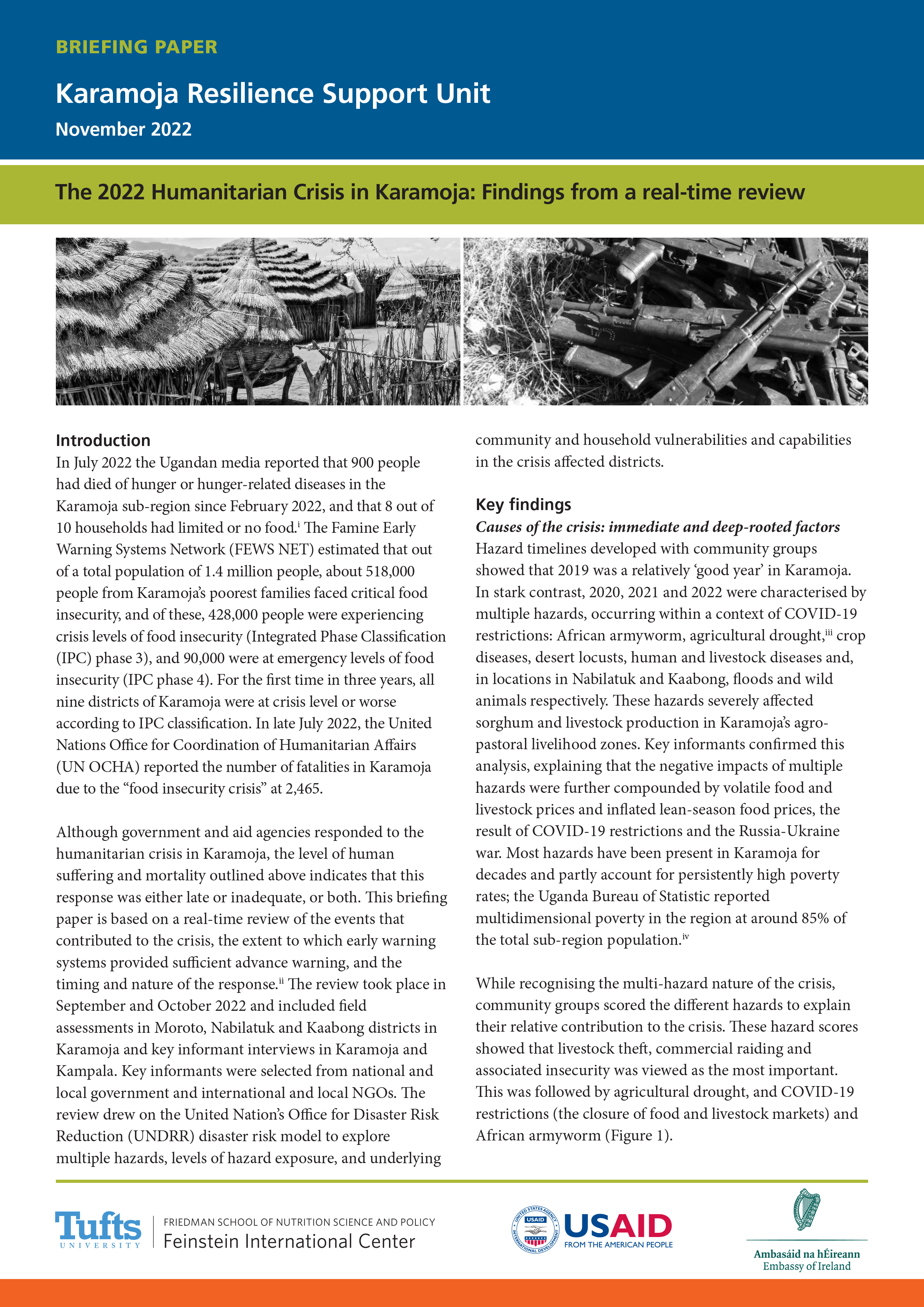
The 2022 Humanitarian Crisis in Karamoja: Findings from a real-time review
In July 2022 the Ugandan media reported that 900 people had died of hunger or hunger-related diseases in the Karamoja sub-region since February 2022, and that 8 out of 10 households had limited or no food.i
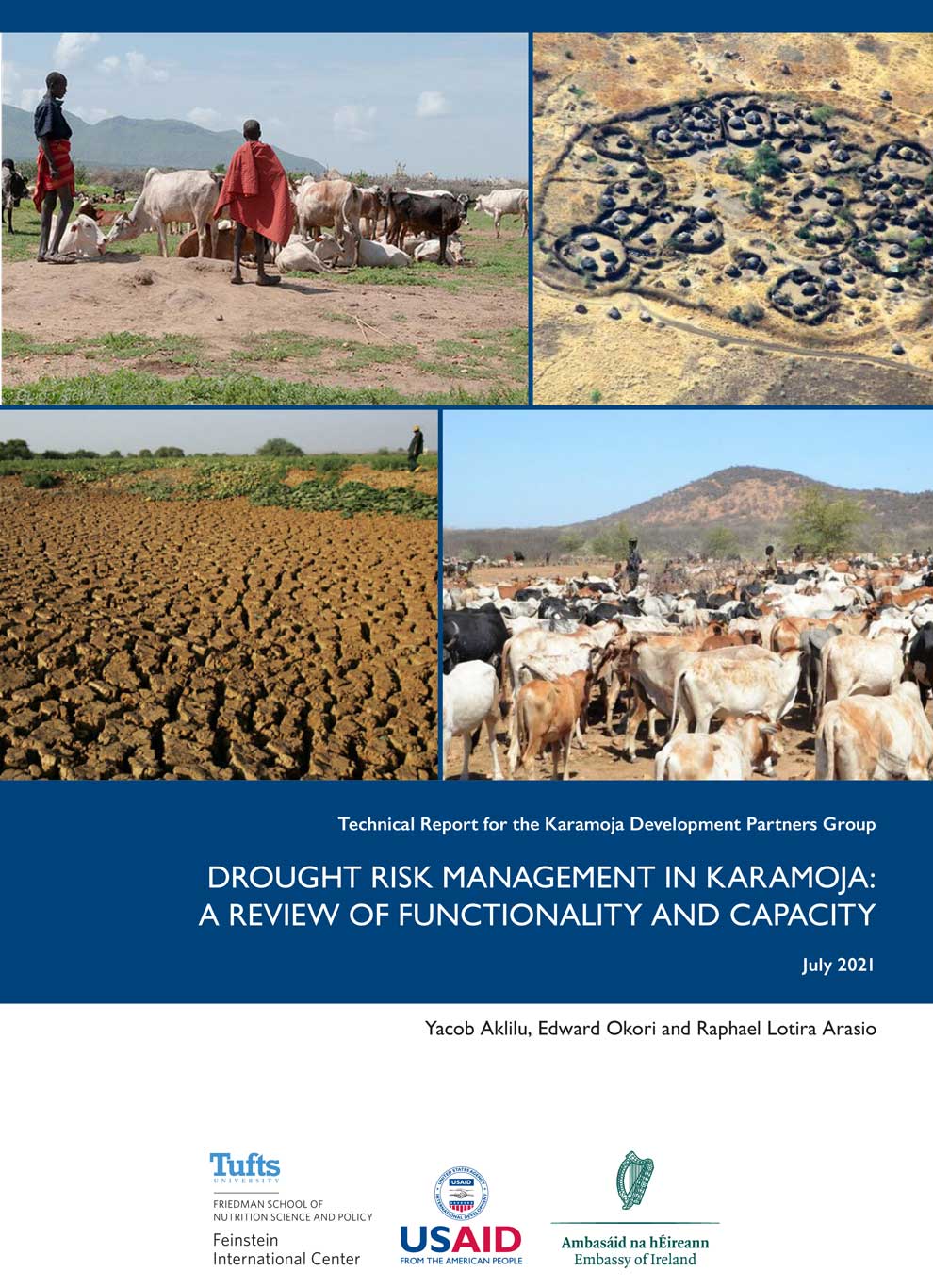
Drought Risk Management in Karamoja: A Review of Functionality and Capacity
In the history of Karamoja, drought has been one of the most important types of disaster, with major impacts on livelihoods. For livestock-owning households, drought can push both wealthy and poorer households into destitution, and the recovery of herds, their main form of financial capital, takes many years. Drought also has serious impacts on crop production and can decimate harvests. In the case of livestock interventions, there have been notable developments in effective drought response in many countries in the wider East Africa region, including novel partnerships between government, non-governmental organizations (NGOs) and private sector to provide early and more cost-effective programming.
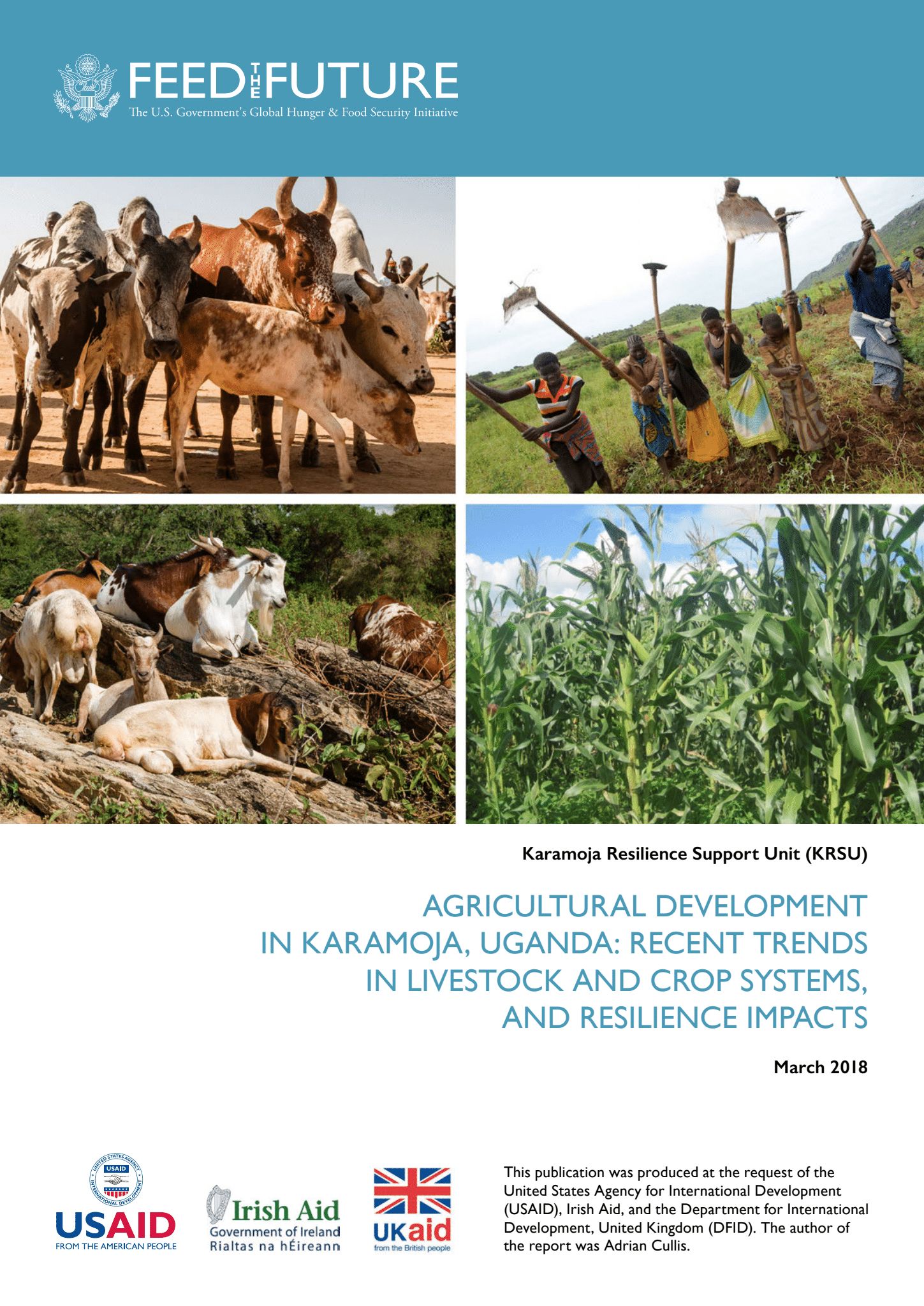
AGRICULTURAL DEVELOPMENT IN KARAMOJA, UGANDA: RECENT TRENDS IN LIVESTOCK AND CROP SYSTEMS, AND RESILIENCE IMPACTS
This report is a review of agricultural development trends in the Karamoja sub-region of northeast Uganda. The review covered both crop farming and transhumance livestock management and examined agriculture at the levels of both policy and programming.
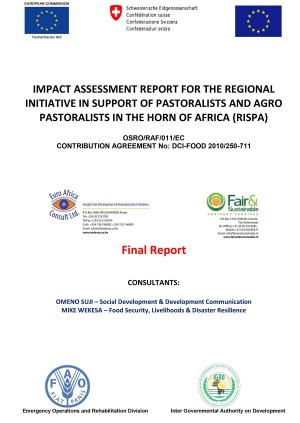
Impact Assessment Report for the Regional Initiative in Support of Pastoralists and Agro Pastoralists in the Horn of Africa (RISPA)
The report presents the relevance of the RISPA project to pastoral and agro-pastoral livelihoods in the HoA; its implementation performance; effectiveness in achieving expected results; efficiency; cross-cutting issues; impact; key issues/lessons learned from implementation and makes recommendations to be considered in future. The Project supported community action plans, government coordination structures and regional policies/ institutions in support of pastoral livelihoods in order to strengthen the resilience of agro-pastoral and pastoral communities and to diversify their livelihoods strategies and options.